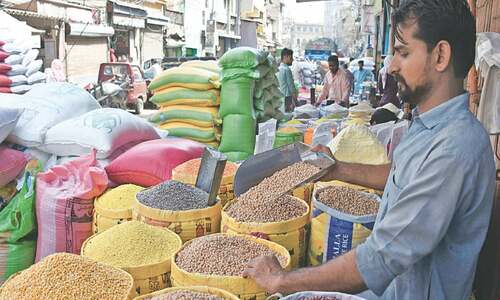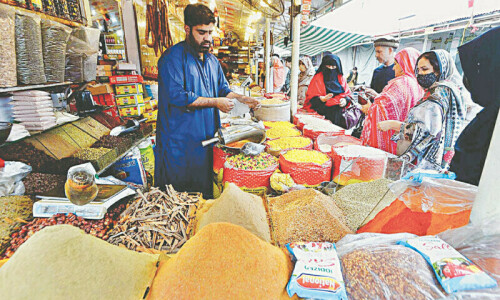Inflation, measured by the Consumer Price Index (CPI), surged by 28.3 per cent year-on-year in January, according to data released from the Pakistan Bureau of Statistics (PBS) on Thursday.
This is the last monthly CPI data before the general elections due on Feb 8 and comes as the country undertakes reforms linked to a $3 billion Standby Arrangement with the International Monetary Fund (IMF).
According to the PBS, monthly inflation for Jan registered a 1.83pc rise from the previous month.
“Inflation in January is higher than earlier expectations mainly due to energy prices and food inflation. This was also one of the reasons given by the central bank for not easing rates now,” said Mohammed Sohail, CEO of Karachi-based brokerage firm Topline Securities.
Earlier this week, the State Bank of Pakistan (SBP) held its key rate at 22pc for the fifth policy meeting in a row and increased its full-year inflation projections.
The SBP governor said the decision was warranted due to “elevated” inflation — which was 29.7pc in December.
He said a rise in the bank’s average inflation forecast for the fiscal year ending in June to 23-25pc, from a previous projection of 20-22pc, was due to rising gas and electricity prices.
An increase was noted on a month-on-month basis in:
Urban:
Food: Chicken (31.44pc), Tomatoes (28.28pc), Onions (27.87pc), Eggs (17.22pc), Fresh Vegetables (8.31pc), Pulse Gram (7.63pc) and Fish (5.47pc).
Non-food: Communication Services (15.68pc), Woolen Readymade Garments (6.84pc), Electricity Charges (6.45pc), Liquified Hydrocarbons (2.53pc) and Marriage Hall Charges (2.35pc).
Rural:
Food: Onions (31.01pc), Chicken (25.02pc), Tomatoes (24.12pc), Eggs (19.81pc), Fresh Vegetables (8.08pc) and Pulse Gram (6.56pc).
Non-food: Communication Services (18.7pc), Electricity Charges (6.45pc), Marriage Hall Charges (4.08pc), Woolen Readymade Garments (3.91pc) and Liquified Hydrocarbons (3.57pc).














































